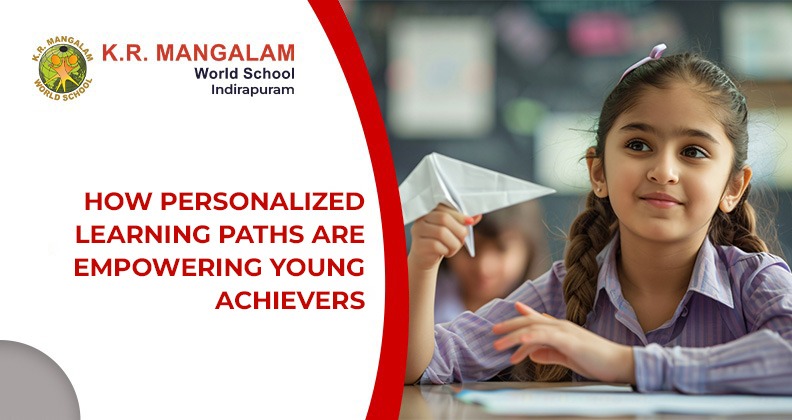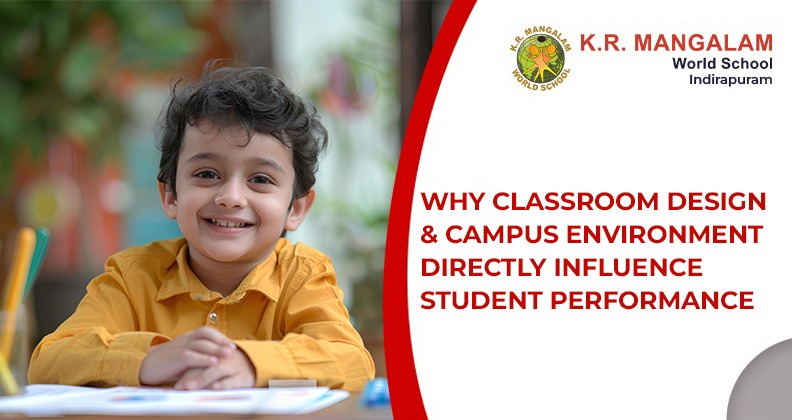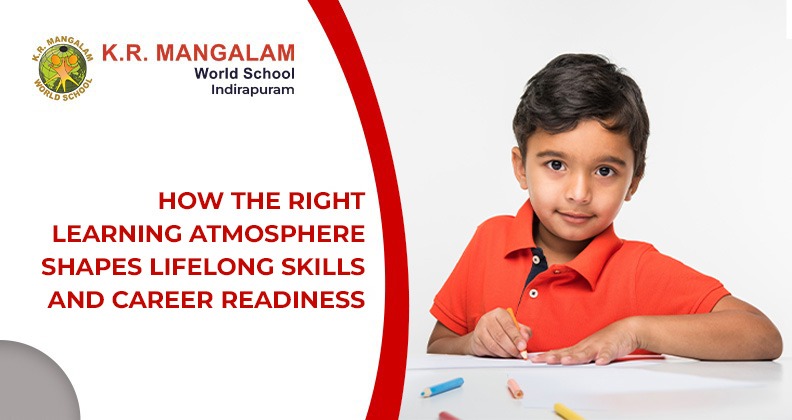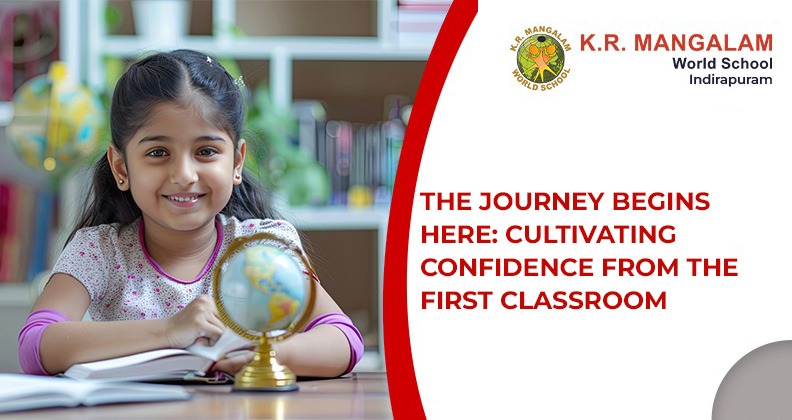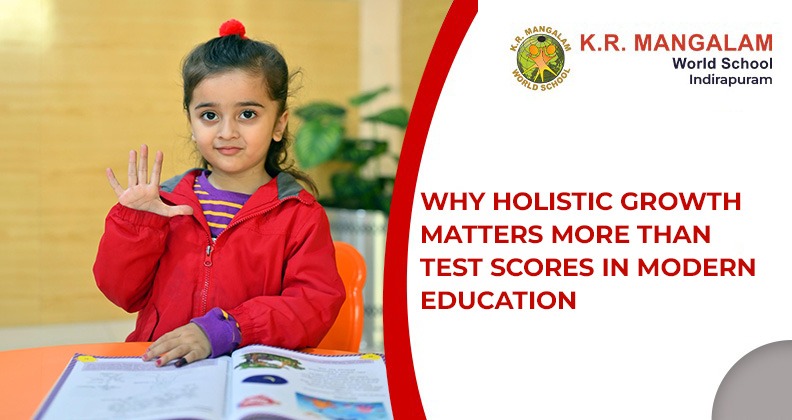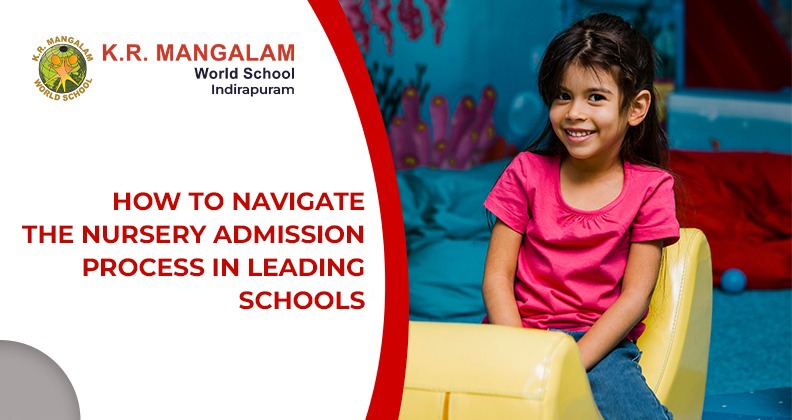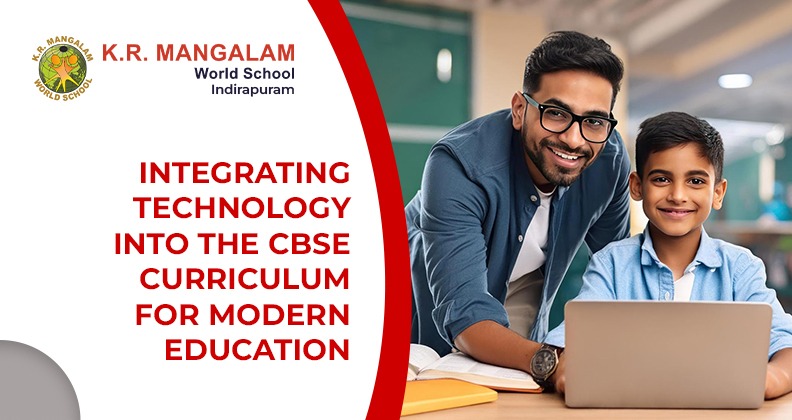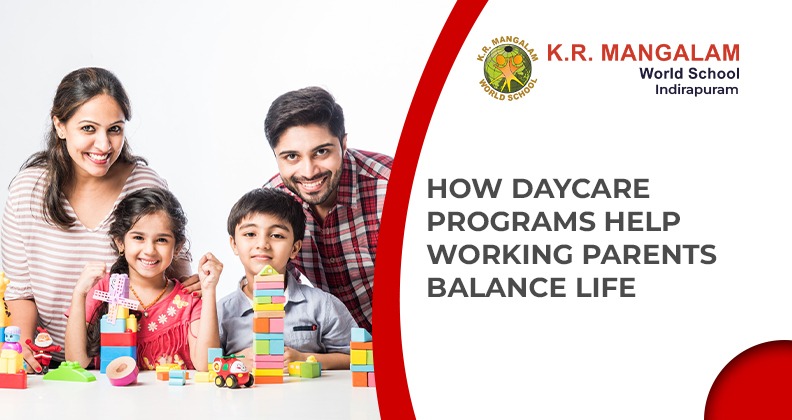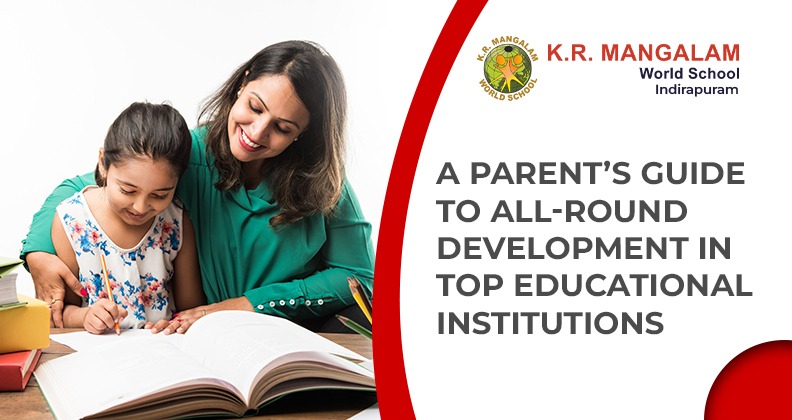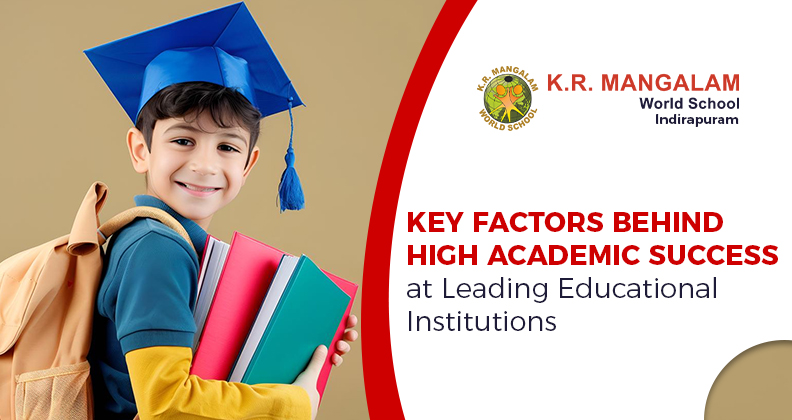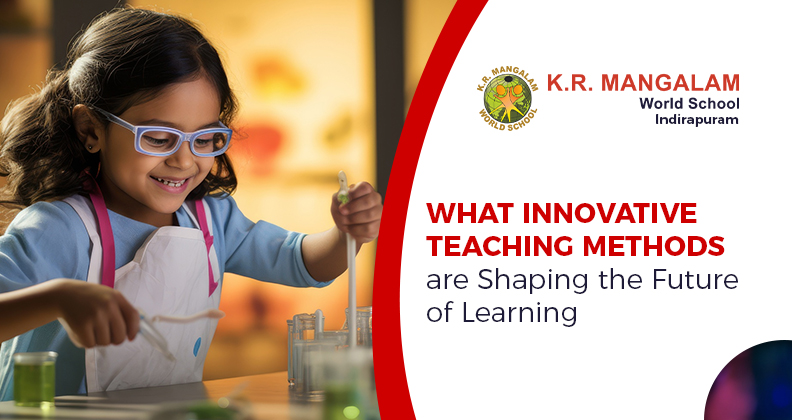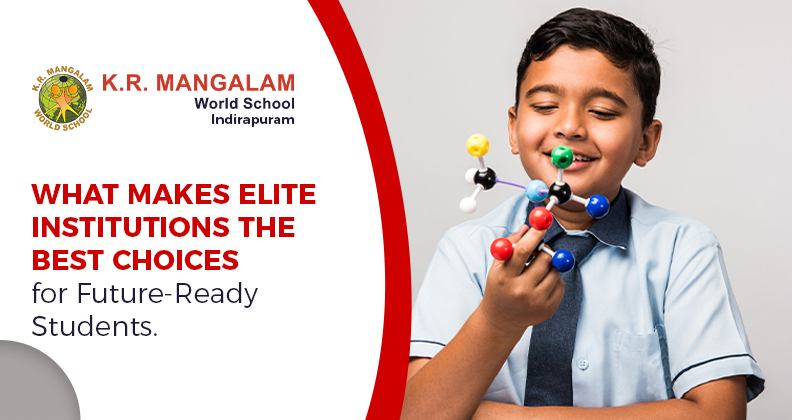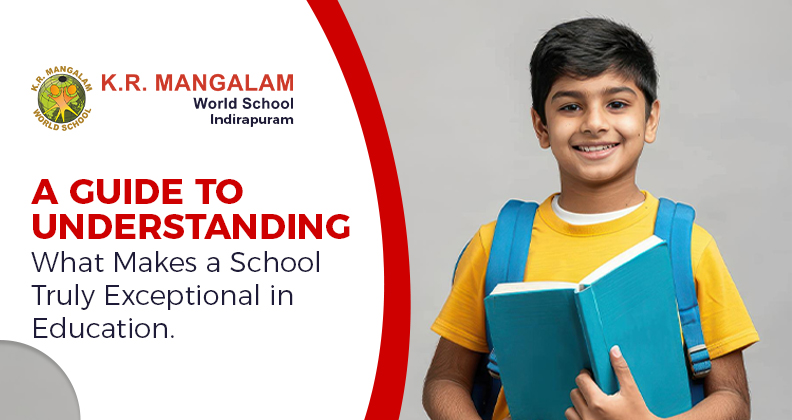Introduction:
In the dynamic landscape of modern education, one-size-fits-all learning models are becoming outdated. At K.R. Mangalam Indirapuram, the Best School in Vaishali Ghaziabad where today, educators and parents alike are recognising that every child learns differently, at their own pace, through unique interests and strengths. This understanding has given rise to personalized learning paths — a revolutionary approach that adapts the learning journey to suit each student’s individual needs.
The philosophy is simple yet powerful: education should not be about memorising and reproducing; it should be about discovering, understanding, and applying. This shift has transformed classrooms into spaces of exploration and creativity, especially in institutions that are often regarded among the schools, where nurturing individuality has become the foundation of success.
About Us:
At our school we recognise that every child is unique—so their learning path should be too. Through small-group mentoring, tailored learning modules, digital adaptive tools and student‐choice projects, we allow each learner to progress at their own pace. Enrichment opportunities include coding boot-camps, creative writing clubs, math Olympiad prep, language labs, and entrepreneurial hubs. Regular events—such as our “Young Innovators Expo,” personalized student portfolios, and career-map workshops—celebrate each child’s strengths. Co-curricular programs in art, music, debate and outdoor adventure ensure well-rounded development. Our modern infrastructure, outdoor learning zones and global-exchange tie-ups enhance exposure. The result? Students who feel empowered, capable, and motivated to lead and learn throughout life.
The Shift from Standardisation to Personalisation
For decades, traditional education systems have focused on standardised curricula and uniform testing methods. While this ensured structure, it often ignored individual differences among students. Every learner has a distinct rhythm — some grasp concepts quickly, others thrive with experiential learning, and many perform best when theory is connected to real-life examples.
Personalized learning challenges the idea that intelligence can be measured by a single metric. It recognises multiple intelligences — linguistic, logical, spatial, interpersonal, and more — allowing children to grow holistically.
Schools adopting this approach are rethinking lesson planning, assessments, and even classroom layouts. Teachers act as facilitators, not just instructors, guiding each student to uncover their potential. This learner-centric approach has made top educational institutions stand out as some of the schools, where individuality is celebrated and nurtured.
What Exactly Is a Personalized Learning Path?
A personalized learning path tailors the educational journey to suit a student’s specific learning needs, pace, and aspirations. It’s not just about customising assignments; it’s about designing an entire ecosystem that evolves with the learner.
Key elements include:
- Flexible Curriculum:
Instead of following rigid timetables, students move forward as they master concepts. They aren’t forced to move on just because the calendar says so. - Technology Integration:
AI-driven tools, digital learning platforms, and adaptive assessments help teachers track progress in real time. These insights shape future lessons, ensuring targeted improvement. - Goal-Oriented Learning:
Every student sets short- and long-term learning goals, fostering a sense of ownership and accountability. - Continuous Feedback:
Instead of relying solely on report cards, regular feedback sessions keep students aware of their progress and areas to improve. - Teacher-Student Collaboration:
Teachers become mentors, engaging in one-on-one sessions to understand the learner’s mindset and motivations.
This model creates empowered, self-aware students who not only achieve academic excellence but also develop confidence, emotional intelligence, and resilience — qualities that define true achievers.
Why Personalized Learning Works
Personalisation in education is not a trend — it’s a proven strategy grounded in cognitive and developmental science. Here’s why it’s effective:
- It Fosters Deeper Understanding : When lessons are connected to a student’s interests and pace, understanding replaces rote memorisation. Learners relate better to real-world contexts, leading to lasting comprehension.
- It Encourages Self-Motivation : Students learn to set their own goals, measure progress, and celebrate milestones. This self-directed approach enhances motivation and builds lifelong learners.
- It Reduces Learning Gaps : Every child has unique strengths and weaknesses. Personalized learning ensures that struggling areas receive extra focus without discouraging the learner.
- It Builds Confidence : When students succeed on their own learning terms, their confidence naturally grows. They begin to view challenges as opportunities rather than obstacles.
- It Prepares for Real-World Success : The future workforce values adaptability, creativity, and problem-solving — skills that thrive in personalized learning environments.
The Role of Teachers in Personalized Learning
Teachers play a crucial role in making personalized learning successful. Far from traditional instruction, they act as learning architects — designing experiences that ignite curiosity and engagement.
How teachers enable personalized learning:
- Observation and Data Tracking: Regularly monitoring student progress using digital tools and classroom observation.
- Custom Lesson Plans: Creating varied activities that cater to different learning styles — visual, auditory, or kinesthetic.
- Empathy and Communication: Understanding each student’s emotional and cognitive needs.
- Parental Involvement: Keeping parents engaged through continuous feedback and discussions about learning goals.
This collaborative triangle — teachers, students, and parents — ensures a holistic and supportive environment that has made certain institutions stand among the schools.
Technology: The Driving Force Behind Personalisation
In today’s classrooms, technology is no longer just a supplementary tool — it’s an enabler of innovation. Learning management systems, interactive apps, and AI-driven insights allow educators to track every student’s journey seamlessly.
Some key innovations include:
- Adaptive Learning Software: Platforms that adjust difficulty levels based on student performance.
- Gamified Education: Game-based modules that make complex subjects engaging.
- Virtual and Augmented Reality: Immersive experiences that transform abstract concepts into visual reality.
- Digital Portfolios: A record of a student’s progress, achievements, and creative projects throughout the year.
Technology bridges the gap between individual attention and classroom scalability, ensuring that no student is left behind.
Cultivating Emotional Intelligence and Life Skills
True education goes beyond textbooks — it encompasses the development of emotional and social intelligence. Personalized learning naturally promotes empathy, collaboration, and resilience.
When students are encouraged to make choices, reflect on outcomes, and express themselves freely, they become emotionally intelligent individuals capable of navigating life’s complexities.
This is why the schools focus not just on academic learning but also on building self-awareness, leadership, and ethical responsibility. Students learn how to manage emotions, handle peer interactions, and think critically — preparing them for success in and beyond classrooms.
Personalized Learning in Action: A Glimpse of Transformation
In many modern classrooms, personalized learning manifests through project-based learning, peer mentoring, and interdisciplinary exploration.
For example, a student passionate about the environment might explore topics in science, geography, and social studies through sustainability projects. Meanwhile, another inclined toward technology may learn mathematics through coding and robotics.
This dynamic approach connects learning with purpose — creating achievers who not only perform well in exams but also contribute meaningfully to society.
Parental Engagement: A Key to Personalized Growth
Parents play an indispensable role in shaping a child’s learning journey. When parents are informed and involved, they can reinforce learning habits at home and nurture emotional growth.
Modern institutions encourage active collaboration between teachers and parents through:
- Regular progress reports
- Workshops and open-house sessions
- Parent-student-teacher meetings
- Digital communication platforms
This transparent and continuous engagement ensures that learning doesn’t stop at the school gate — it becomes a lifestyle of growth and discovery.
Challenges and the Way Forward
Implementing personalized learning requires careful planning, trained educators, and adaptive infrastructure. It demands smaller class sizes, robust digital ecosystems, and ongoing teacher development.
However, as the world shifts toward learner-centered education, these challenges are becoming opportunities. By investing in innovation and training, schools can continue to deliver education that is not just effective but transformative.
The institutions leading this change are the ones that truly embody the values of school, creating young achievers ready to face a complex, globalised future.
How Personalized Learning Shapes Future Achievers
The outcomes of personalized learning extend far beyond academics. Students grow into well-rounded individuals capable of independent thought, empathy, and innovation.
Here’s what sets young achievers apart:
- Self-Awareness: They understand their learning styles and strengths.
- Goal-Oriented Mindset: They know how to set, pursue, and achieve meaningful goals.
- Resilience: They can adapt and overcome challenges.
- Creativity: They think beyond conventional boundaries.
- Collaborative Spirit: They thrive in teamwork and community engagement.
These attributes reflect the core of future readiness — where success is measured not just by grades but by growth, purpose, and adaptability.
Conclusion:
Personalized learning paths are more than an educational trend — they represent a paradigm shift in how we perceive intelligence, success, and potential. At K.R. Mangalam Indirapuram, the Top Schools in Vaishali Ghaziabad where by placing students at the centre of learning, this approach ensures that no child feels left out or undervalued.
When schools embrace this philosophy, they create confident, self-driven individuals capable of shaping their own destinies. Such progressive educational models redefine what it means to achieve — empowering learners to thrive academically, emotionally, and socially.
In an era where adaptability and innovation drive global progress, personalized learning stands as the key to nurturing tomorrow’s visionaries. The institutions leading this transformation — often counted among the schools— are not just educating children; they are building empowered individuals ready to make a difference.
FAQs:
Q. 1 What is personalized learning in schools?
Ans : Personalized learning tailors education to each student’s interests, strengths, and pace. It allows learners to explore subjects deeply and grow in confidence while achieving better outcomes.
Q. 2 How does personalized learning benefit young achievers?
Ans : It empowers students by recognizing their unique talents and encouraging self-driven learning. This helps them develop problem-solving and analytical skills essential for success in the modern world.
Q. 3 How do the schools apply personalized learning?
Ans : Such institutions use modern teaching tools, project-based learning, and teacher mentorship to ensure every student receives individual attention and encouragement to excel in their chosen path.
Q. 4 Can personalized learning work in early education too?
Ans : Yes, personalized approaches in early years build curiosity and confidence. When children learn at their own pace, they enjoy learning and develop a lifelong love for discovery.
Q. 5 What role does technology play in personalized education?
Ans : AI tools, smart classrooms, and interactive learning platforms help teachers track progress, adjust content, and create dynamic learning experiences tailored to each student.
Q. 6 How does personalized learning prepare students for real-world challenges?
Ans : It teaches adaptability, self-motivation, and decision-making—qualities that help students thrive in higher education, careers, and everyday life.


